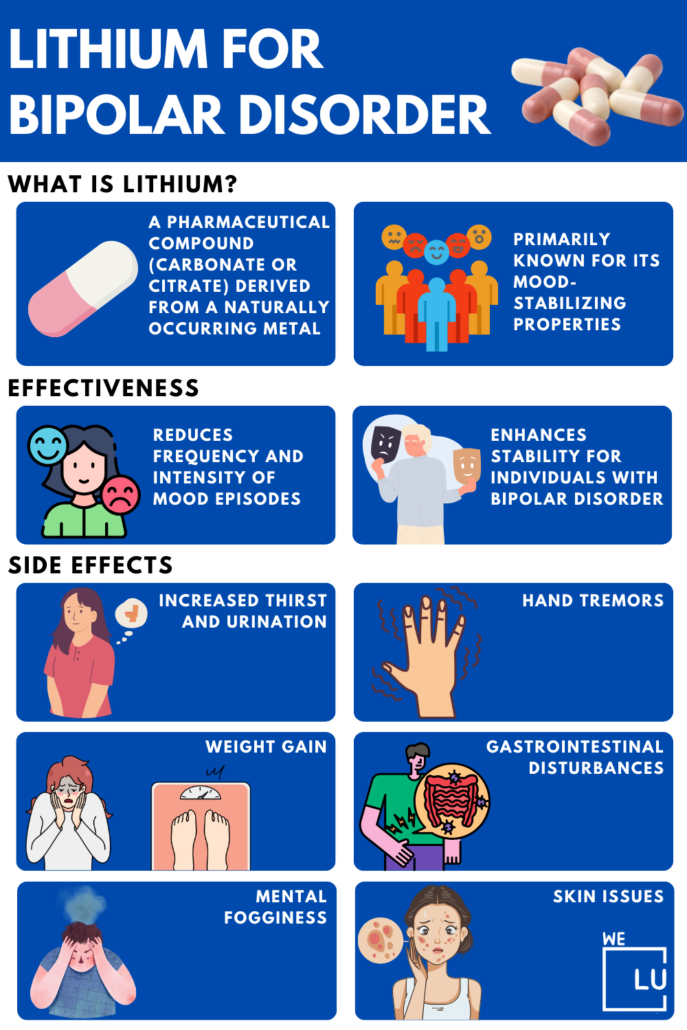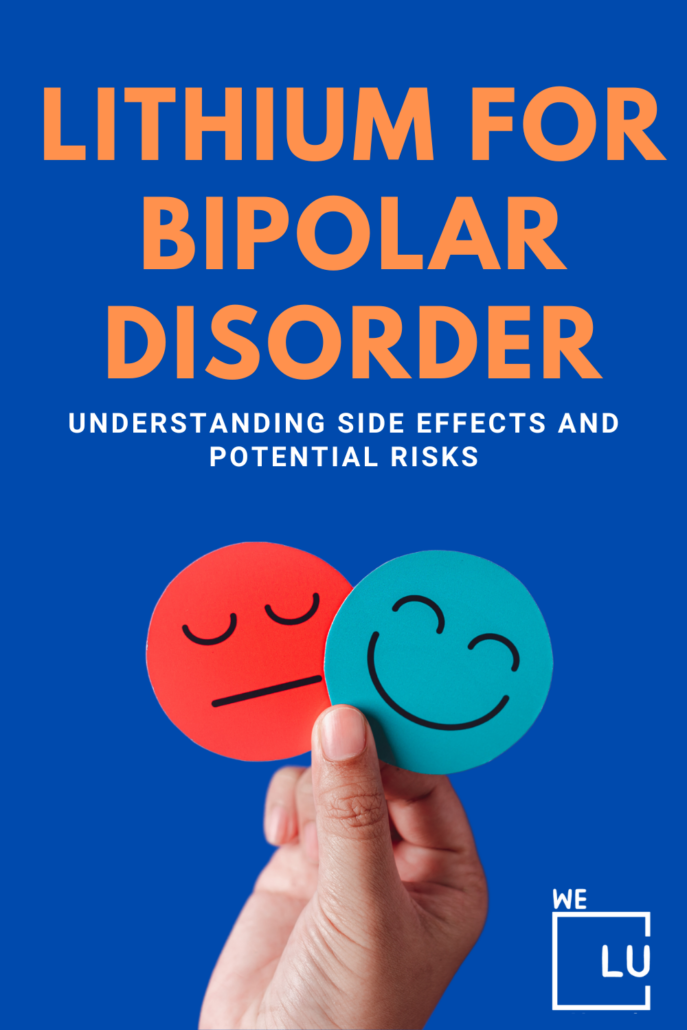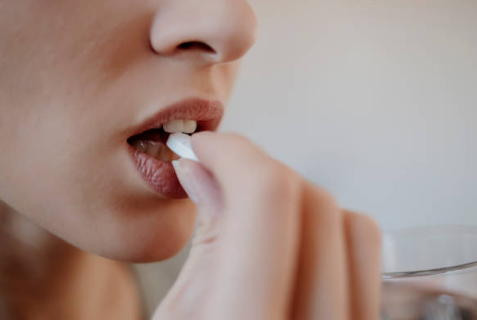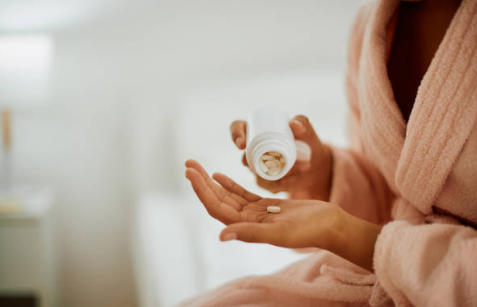Lithium for Bipolar Disorder Overview
Bipolar disorder is a complex mental health condition affecting millions worldwide. Managing this condition often requires a combination of therapeutic approaches, and one of the most well-known medications used in its treatment is lithium. With a long history in psychiatric medicine, lithium has been instrumental in stabilizing mood swings and reducing the severity of bipolar symptoms for many individuals.
In this article, we delve into using lithium as a treatment for bipolar disorder. We will explore its mechanism of action, its effectiveness in managing bipolar symptoms, and its potential benefits. However, it is equally essential to acknowledge the possible side effects and risks associated with lithium use. While this medication can be a game-changer for many, it is not without its challenges, and understanding these aspects is crucial for both patients and healthcare providers.
While lithium has proven to be a valuable tool in managing bipolar disorder, it is vital to remember that each person’s experience with the medication can differ significantly. By presenting a well-rounded perspective on lithium and its implications, we aim to shed light on this essential aspect of mental health treatment and ultimately contribute to improved understanding and compassionate care for those with bipolar disorder.
What is Lithium?
In medicine and mental health, lithium is a pharmaceutical compound called lithium carbonate or lithium citrate, derived from the naturally occurring metal. Lithium has been used as a medication since the 1940s and is primarily known for its mood-stabilizing properties.
Lithium is commonly prescribed to treat bipolar disorder, a mental health condition characterized by extreme mood swings, including periods of mania (elevated, euphoric mood) and depression. It is considered a first-line treatment for bipolar disorder. It has effectively reduced the frequency and intensity of mood episodes, helping individuals with bipolar disorder achieve more excellent stability.
Lithium is known to have a narrow therapeutic range, meaning that the difference between a therapeutic dose and a toxic dose can be relatively small. Therefore, regular blood tests are often necessary to measure lithium levels in the bloodstream and ensure the medication remains within the therapeutic range.


Skip To:
Learn More:
- Is Bipolar Disorder Genetic? Understanding the Risks of your Family History
- Bipolar with Psychotic Features, Causes, Types, and Treatment
- Bipolar Disorder Medication, 8 Side Effects, and Effective Treatment
- Bipolar Disorder Therapies. Different Types of Effective Therapy for Bipolar Disorder
- Bipolar Schizophrenia Differences.
- Understanding How a Bipolar Person Thinks. What Does Bipolar Feel Like?
- What is Bipolar Psychosis? Learn more About Bipolar with Psychosis
- ADHD and Bipolar Disorder Guide. ADHD Vs Bipolar.
- Guide to Bipolar Mixed Episode. Understanding Bipolar Mixed Episode Symptoms, Causes, and Treatments.
- 4 Common Bipolar Symptoms in Men, Signs, Tips, & Treatment
Get Help. Get Better. Get Your Life Back.
Searching for Accredited Dual Diagnosis Mental Health Centers Near You?
Even if therapy failed previously, or are in the middle of a difficult crisis, we stand ready to support you. Our trusted behavioral health specialists will not give up on you. When you feel ready or just want someone to speak to about counseling alternatives to change your life call us. Even if we cannot assist you, we will lead you to wherever you can get support. There is no obligation. Call our hotline today.
FREE 24/7 Dual Diagnosis Mental Health Services HotlineWe Level Up Lithium for Bipolar Mental Health Center Tips and Tricks
Adhering strictly to the prescribed lithium dosage is crucial for managing bipolar disorder effectively. Regular blood tests ensure proper therapeutic levels and prevent toxic levels of lithium. Never change your lithium dosage without consulting your healthcare provider; sudden adjustments can lead to relapse or adverse reactions. If you experience discomfort or side effects, inform your healthcare provider. Maintaining consistent hydration is essential for the proper functioning of lithium. Always follow your healthcare provider’s advice for the best outcomes in your bipolar disorder treatment.
Lithium Bipolar Disorder Facts Sheet
Bipolar Disorder:
- Mood Episodes: Characterized by distinct episodes of mania/hypomania and depression.
- Duration: Mood episodes can last for days, weeks, or months.
- Triggers: Episodes can occur without external triggers, and mood shifts are often unrelated to specific events.
- Self-Image: Individuals typically have a stable sense of self and identity.
- Impulsivity: Impulsive behaviors may occur during manic episodes.
- Treatment: Mood-stabilizing medications are often prescribed, along with psychotherapy.
Types of bipolar disorder:
There are several types of bipolar disorder, including:
- Bipolar I disorder: Characterized by manic episodes lasting at least seven days or severe manic symptoms requiring immediate hospitalization.
- Bipolar II disorder: Involves a pattern of depressive episodes and hypomanic episodes, but not full-blown mania.
- Cyclothymic disorder: This is marked by numerous periods of hypomanic and depressive symptoms that last for at least two years (one year for children and adolescents).
Symptoms:
The symptoms of bipolar disorder vary depending on the mood episode:
- Manic episodes: Elevated mood, increased energy, racing thoughts, impulsivity, decreased need for sleep, excessive talking, grandiosity, and risky behavior.
- Hypomanic episodes: Similar to manic episodes but with less severity and a shorter duration.
- Depressive episodes: Persistent sadness, loss of interest or pleasure in activities, changes in appetite and sleep patterns, fatigue, feelings of guilt or worthlessness, difficulty concentrating, and thoughts of death or suicide.
Impact on daily life:
- Bipolar disorder can significantly impact various aspects of a person’s life, including relationships, work or school performance, and overall quality of life. However, with proper treatment and support, individuals with bipolar disorder can manage their symptoms effectively and lead fulfilling lives.
Lithium for Bipolar Disorder Statistics
Among the various therapeutic options available, lithium stands out as a cornerstone medication in managing bipolar disorder.
In this article, we delve into the realm of statistics surrounding the use of lithium for bipolar disorder. We examine data from clinical studies and real-world experiences to shed light on its efficacy in stabilizing mood, preventing relapses, and improving the overall quality of life for individuals with bipolar disorder.
- Lithium Prescription Rates: Lithium is one of the most commonly prescribed medications for bipolar disorder. It has been used for decades and remains a first-line treatment option for stabilizing mood swings.
- Effectiveness: Studies have shown that lithium effectively reduces the frequency and severity of manic and depressive episodes in individuals with bipolar disorder. It can help prevent relapses and promote long-term stability.
- Adherence Rates: Adherence to lithium treatment can be challenging due to its narrow therapeutic range and potential side effects. Some studies suggest that many patients may discontinue lithium therapy or not adhere to the prescribed dosage over time.
2.4%
The global prevalence of bipolar disorder
Source: CDC
25 years
Bipolar disorder typically emerges in late adolescence or early adulthood
Source: NIMH
3:1
BPD is more commonly diagnosed in females
Source: NIH
Lithium Dosage for Bipolar
Lithium dosage for bipolar disorder can vary depending on several factors, including the individual’s age, weight, kidney function, the severity of their bipolar symptoms, and response to the medication. Lithium is a potent medication, and it is essential to start with a low dose and gradually increase it to achieve therapeutic levels while monitoring for any side effects or adverse reactions.
Typically, the initial lithium dosage for bipolar disorder is around 300 to 600 milligrams per day, divided into two to three doses. After starting the medication, healthcare providers will regularly monitor the patient’s blood levels of lithium to ensure that it falls within the therapeutic range. The therapeutic range is typically between 0.6 to 1.2 milliequivalents per liter (mEq/L) for acute mania and 0.6 to 1.0 mEq/L for maintenance treatment.

It’s crucial for individuals taking lithium to attend regular follow-up appointments with their healthcare provider, as monitoring blood levels and potential side effects is essential for safe and effective treatment. Also, patients should not adjust their dosage or stop taking lithium without consulting their healthcare provider, as sudden changes can lead to unstable moods or withdrawal effects.

End the Emotional Pain. Get Your Life Back.
Feeling Depressed, Anxious or Struggling with Mental Health Illness? Get Safe Comfortable Mental Health Dual Diagnosis High-Quality Therapy From Counselors That Care. Begin Your Recovery Now.
Hotline (855) 940-6125Lithium Side Effects Bipolar
Some common side effects of lithium in the context of bipolar disorder treatment include:
- Increased Thirst and Urination: Lithium can cause polydipsia (excessive thirst) and polyuria (increased urination), leading to frequent bathroom trips.
- Hand Tremors: Many individuals on lithium may experience fine hand tremors, which can be noticeable when performing precise movements.
- Weight Gain: Some people may experience weight gain while taking lithium, which can be a concern for those already struggling with body image or related health issues.
- Gastrointestinal Disturbances: Lithium may cause stomach upset, nausea, or diarrhea in some individuals.
- Mental Fogginess: Some people report feeling sluggish or experiencing cognitive difficulties while on lithium.
- Skin Issues: Lithium can cause skin-related side effects, such as acne, rashes, or skin dryness.
- Hypothyroidism: Long-term use of lithium can affect the thyroid gland and lead to an underactive thyroid (hypothyroidism), which may result in fatigue, weight gain, and other symptoms.
- Kidney Function Changes: Lithium can impact kidney function, especially with long-term use. Regular monitoring of kidney function is necessary to detect any abnormalities early.
- Mood Swings: Ironically, while lithium is used to stabilize mood swings in bipolar disorder, in some cases, it may lead to episodes of depression or mania, especially if the dosage is not adjusted correctly.
The benefits of lithium treatment can often outweigh the side effects, and many individuals find significant relief and improved quality of life with this medication. It’s crucial for individuals taking lithium to communicate openly with their healthcare provider about any side effects they experience. In some cases, adjusting the dosage or trying an alternative treatment may be necessary to address bothersome side effects while maintaining bipolar symptom control.
First-class Facilities & Amenities
World-class High-Quality Mental Health Services & Behavioral Health Substance Abuse Treatment
Rehab Centers TourRenowned Mental Health Centers. Serene Private Facilities. Inpatient Rehab Programs Vary.
Mental Health Helpline (855) 940-6125Proven recovery success experience, backed by a Team w/ History of:
15+
Years of Unified Experience
100s
5-Star Reviews Across Our Centers
10K
Recovery Successes
- Comprehensive Dual-Diagnosis Treatment
- Complimentary Family & Alumni Programs
- Coaching, Recovery & Development Events
- Comfortable Onsite Medical Detox Center
How Does Lithium Treat Bipolar Disorder?
What does Lithium do for Bipolar Disorder? Lithium is thought to treat bipolar disorder through several complex mechanisms in the brain. While the exact process is not fully understood, it is believed to involve the regulation of neurotransmitters such as serotonin, norepinephrine, and dopamine, which play critical roles in mood regulation

By influencing their activity, lithium can help stabilize mood and reduce mood swings in individuals with bipolar disorder. Additionally, lithium may have neuroprotective effects, shielding brain cells from damage and promoting their survival. This is especially relevant as bipolar disorder has been associated with structural and functional brain changes, and lithium’s neuroprotective properties could mitigate these effects.
Furthermore, lithium’s ability to modify gene expression in the brain may lead to long-term changes in neural function, contributing to its mood-stabilizing effects and preventing relapses in bipolar disorder. Though these proposed mechanisms offer insight, further research is needed to comprehend how lithium effectively treats bipolar disorder fully.
Pros and Cons of Lithium for Bipolar
Pros of Lithium for Bipolar Disorder:
- Effective Mood Stabilization: Lithium is one of the most effective medications for stabilizing mood swings in bipolar disorder. It helps reduce the frequency and severity of manic and depressive episodes, promoting a more stable emotional state.
- Preventing Relapses: Lithium is particularly beneficial in preventing relapses or recurrent mood episodes in individuals with bipolar disorder, leading to more extended periods of remission.
- Reduced Suicide Risk: Studies suggest that lithium treatment is associated with a reduced risk of suicide in individuals with bipolar disorder, as it helps to manage severe depressive states that may be linked to suicidal thoughts.
- Long-Term Efficacy: Many individuals experience sustained benefits from lithium treatment over the long term, making it a reliable option for managing bipolar symptoms over time.
- Bipolar-Specific Action: Lithium is specifically effective in treating bipolar disorder, targeting the unique neurobiological abnormalities associated with this condition.
Cons of Lithium for Bipolar Disorder:
- Narrow Therapeutic Range: Lithium has a limited therapeutic range, meaning the difference between a therapeutic dose and a toxic dose can be small. Regular blood tests are necessary to monitor lithium levels and ensure they remain within the therapeutic range.
- Side Effects: Lithium can cause side effects, including increased thirst, frequent urination, hand tremors, weight gain, and gastrointestinal issues. Some individuals may find these side effects bothersome or difficult to manage.
- Kidney and Thyroid Issues: Long-term use of lithium may impact kidney function and lead to an underactive thyroid (hypothyroidism). Regular kidney and thyroid function monitoring is essential to detect any potential problems.
- Cognitive Impairment: Some individuals on lithium treatment may experience mental fogginess or cognitive difficulties, affecting memory or concentration.
- Drug Interactions: Lithium can interact with other medications, potentially affecting their effectiveness or causing adverse reactions. Individuals must inform their healthcare providers about all their medicines and supplements.
- Pregnancy Concerns: Lithium use during pregnancy may carry some risks, and women of childbearing age need to carefully weigh the benefits and potential risks in consultation with their healthcare provider.
- Individual Variability: Response to lithium can vary widely among individuals. While many people benefit from the medication, it may not be effective for everyone, and some may not tolerate it well due to side effects.
World-class, Accredited, 5-Star Reviewed, Effective Mental Health Dual Diagnosis Programs. Complete Integrated Inpatient Rehab with Free Post Discharge Therapy Planning.
CALL (855) 940-6125End the Emotional Pain Rollercoaster. Gain Stability & Happiness Through Recovery Treatment. Start Mental Health Counseling Today. Get Free No-obligation Guidance by Behaviroal Health Specialists Who Understand Mental Health Recovery.
Alternatives to Lithium for Bipolar
While lithium is a widely used and effective treatment for bipolar disorder, it may not be suitable for everyone or may cause intolerable side effects in some individuals. Fortunately, alternative medications and therapeutic approaches are available for managing bipolar symptoms. Some alternatives to lithium for bipolar disorder include:
Mood Stabilizers:
- Valproate (Valproic Acid): Valproate is another mood stabilizer commonly used in bipolar disorder treatment. It can effectively reduce manic episodes but may be associated with weight gain and other side effects.
- Lamotrigine: Lamotrigine is primarily used to prevent depressive episodes in bipolar disorder. It is considered well-tolerated and may be beneficial for individuals who experience more depressive symptoms than manic ones.
Atypical Antipsychotics:
- Olanzapine: Olanzapine is an atypical antipsychotic that can help manage both manic and mixed episodes of bipolar disorder. It may be used alone or in combination with other mood stabilizers.
- Quetiapine: Quetiapine is another atypical antipsychotic that can effectively treat both manic and depressive episodes in bipolar disorder.
Antidepressants: In some cases, antidepressants may be prescribed to manage depressive episodes in bipolar disorder. However, they are typically used cautiously and in combination with a mood stabilizer to avoid triggering manic episodes.
Psychotherapy: Various types of psychotherapy, such as cognitive-behavioral therapy (CBT) and interpersonal therapy, can be beneficial in helping individuals cope with bipolar disorder, improve mood regulation, and develop healthy coping strategies.
Electroconvulsive Therapy (ECT): ECT is a treatment option that may be considered for severe or treatment-resistant cases of bipolar disorder. It involves administering controlled electrical currents to the brain to induce a brief seizure, which can lead to improvements in mood.
Other Mood Stabilizers: Some other mood stabilizers, such as carbamazepine and topiramate, may be considered for individuals who do not respond well to lithium or other standard treatments.
The choice of alternative treatments depends on the individual’s specific symptoms, medical history, and medication response. Individuals with bipolar disorder need to work closely with their healthcare providers to find the most suitable treatment plan for effective symptom management while minimizing side effects. Medication adjustments and therapy approaches may be necessary to ensure the best outcomes in bipolar disorder management.
Experience Transformative Recovery at the We Level Up Treatment Center.
See our authentic success stories. Get inspired. Get the help you deserve.



Start a New Life
Begin with a free call to a behavioral health treatment advisor. Learn more about our dual-diagnosis programs. The We Level Up treatment center network delivers recovery programs that vary by each treatment facility. Call to learn more.
- Personalized Care
- Caring Accountable Staff
- World-class Amenities
- Licensed & Accredited
- Renowned w/ 5-Star Reviews
We’ll Call You
Popular Lithium for Bipolar FAQs
-
How does lithium treat bipolar disorder?
How does lithium work for bipolar disorder? Lithium treats bipolar disorder by stabilizing mood swings and reducing the frequency and intensity of manic and depressive episodes.
-
How effective is lithium in the treatment of bipolar disorder?
Lithium is widely regarded as an effective and foundational medication for treating bipolar disorder. It functions as a mood stabilizer, helping to reduce the intensity and frequency of manic and depressive episodes.
Why does lithium help bipolar? Its effectiveness is particularly notable in preventing the recurrence of manic episodes. Many individuals with bipolar disorder experience significant mood stabilization and improvement in their overall well-being with lithium therapy. However, the response to lithium can vary from person to person, and its effectiveness is influenced by factors such as proper dosage, consistent monitoring, and individual characteristics.
Despite the availability of alternative medications, lithium remains a key and often highly beneficial component in managing bipolar disorder.
-
What is the usual dosage of lithium for bipolar disorder?
The average lithium dosage for bipolar disorder typically ranges from 300 to 1,200 milligrams per day, depending on individual factors and response to the medication.
-
What are the normal lithium levels for bipolar disorder?
The therapeutic range for lithium levels in the blood when used to treat bipolar disorder is typically between 0.6 and 1.2 milliequivalents per liter (mEq/L). This range is considered adequate in stabilizing mood while minimizing the risk of toxicity.
-
What does lithium do to someone without bipolar disorder?
Using lithium in individuals without bipolar disorder is not common, and any such use should be carefully considered and supervised by a qualified healthcare professional. Lithium has a narrow therapeutic range, and its use requires close monitoring due to potential side effects and toxicity concerns. Self-prescribing or using lithium without proper medical supervision is strongly discouraged. Always consult a healthcare provider for personalized advice based on your health condition.
-
Is there an alternative to lithium for Bipolar disorder?
Yes, there are alternatives to lithium for bipolar disorder.
Mood stabilizers such as valproic acid and lamotrigine are commonly prescribed as alternatives. Valproic acid affects certain neurotransmitters in the brain, and lamotrigine stabilizes mood by modulating glutamate release.
Antipsychotic medications, such as olanzapine, risperidone, and aripiprazole, are also frequently used to manage symptoms of bipolar disorder, particularly during manic episodes.
Additionally, some individuals may benefit from antidepressants, though their use in bipolar disorder is carefully monitored to prevent the risk of inducing mania.The choice of medication depends on specific symptoms, side effects, and individual response to treatment.
8 Steps & Tips for Maintaining Your Mental Wellbeing Informative Video.
Video Script
We at We Level Up FL are dedicated to personalized mental health services tailored to each person’s unique needs. Our experienced team collaborates closely with clients to create therapy programs that address their challenges and align with their goals. With empathy and support, we empower individuals to take an active role in their mental health journey by providing tools and strategies. We encourage exploration, self-discovery, and growth in a safe and nurturing environment. We understand that everyone is different, so we listen attentively and develop customized therapy plans based on individual concerns, strengths, and aspirations.
Search Drug & Alcohol Rehab / Detox & Mental Health Lithium for Bipolar Disorder, Side Effects & Potential Risks Topics & Resources
Sources
- National Institute of Mental Health (NIMH) – Bipolar Disorder: https://www.nimh.nih.gov/health/topics/bipolar-disorder/ Learn More: Lithium for Bipolar, Lithium alternatives bipolar
- NIMH – Borderline Personality Disorder: https://www.nimh.nih.gov/health/topics/borderline-personality-disorder/ Learn More: Lithium Orotate Benefits, Bipolar medication Lithium
- National Alliance on Mental Illness (NAMI) – Bipolar Disorder: https://www.nami.org/About-Mental-Illness/Mental-Health-Conditions/Bipolar-Disorder Learn More: Lithium for Bipolar, Bipolar and Lithium treatment
- NAMI – Borderline Personality Disorder: https://www.nami.org/About-Mental-Illness/Mental-Health-Conditions/Borderline-Personality-Disorder Learn More: Bipolar Disorder lithium, Bipolar Lithium side effects
- OWH – Borderline Personality Disorder: https://www.womenshealth.gov/mental-health/mental-health-conditions/borderline-personality-disorder Learn More: Lithium for Bipolar
- Substance Abuse and Mental Health Services Administration (SAMHSA) – Bipolar Disorder: https://www.samhsa.gov/find-help/disorders/bipolar-disorder
- Centers for Disease Control and Prevention (CDC) – Mental Health – Bipolar Disorder: https://www.cdc.gov/mentalhealth/basics/bipolar.html
- CDC – Mental Health – Borderline Personality Disorder: https://www.cdc.gov/mentalhealth/basics/borderline.html
- Office on Women’s Health (OWH) – Bipolar Disorder: https://www.womenshealth.gov/mental-health/mental-health-conditions/bipolar-disorder